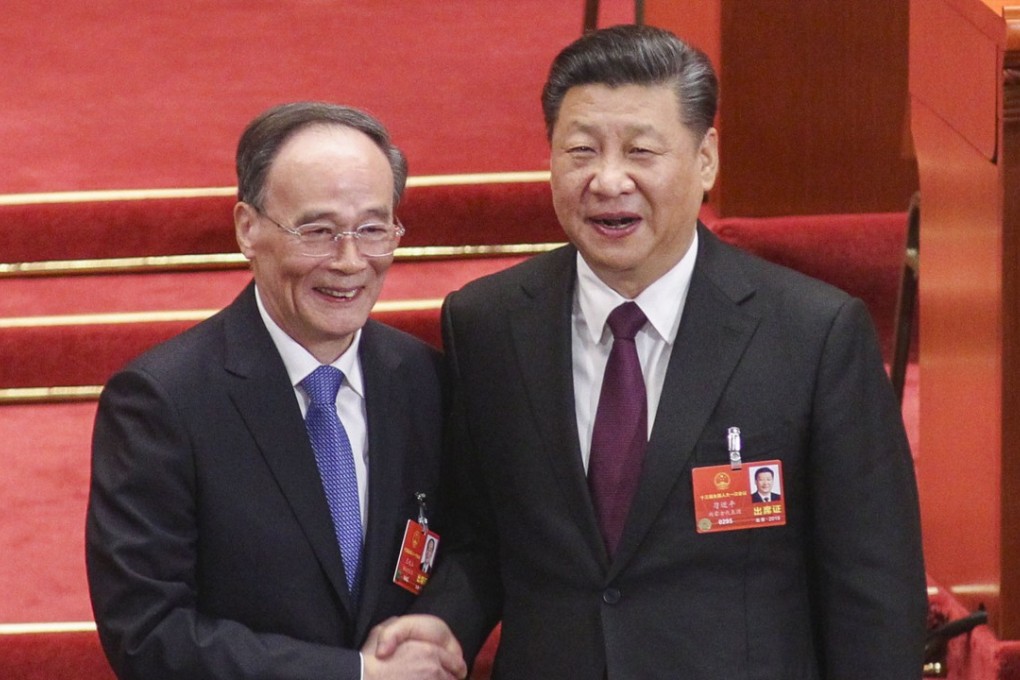First stop, Russia: why China’s new foreign policy supremo Wang Qishan is looking to Moscow
Beijing is seeking to balance the risks in its relationship with Washington, observers say

Chinese Vice-President Wang Qishan heads to Russia this week on his maiden overseas trip since assuming his new foreign policy role, with Beijing looking to hedge bets as it tussles with Washington over trade and geopolitics.
According to the Chinese Ministry of Foreign Affairs, Wang, the former Communist Party anti-graft tsar and one of President Xi Jinping’s most trusted allies, will attend the annual St Petersburg International Economic Forum, which starts on Thursday, and visit Belarus.
Observers said the six-day trip, Wang’s international debut as vice-president, was of geopolitical importance, with Beijing and Moscow seeking closer ties to hedge against US President Donald Trump’s unconventional and aggressive approach on trade and global affairs.
Wang’s trip comes ahead of Russian President Vladimir Putin’s scheduled attendance of the annual summit of the Beijing-led Shanghai Cooperation Organisation in Qingdao and an official visit to China next month.
It also comes just days after Wang made his first appearance last week at the inaugural meeting of the top decision-making Central Foreign Affairs Commission, headed by Xi himself.